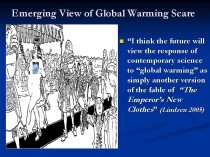Richard Feynman explains the scientific method in 1964 lecture (thanks to Geek.com)
You might not know exactly who Richard Feynman is, but he’s probably affected your life. Feynman was a fabulously famous (in certain circles) theoretical physicist in the mid-late 20th century. He worked on the Manhattan Project to develop the atomic bomb, pioneered particle physics, won a Nobel Prize, and popularized science through books and his own warm persona. In this video from 1964, you can get a glimpse of what made Feynman so notable as he explains the concept of the scientific method to his students.
Everything we hold to be true in science is tested in the same way, and Feynman explains it wonderfully here. No matter how smart a person is, no matter how elegant their hypothesis, if it does not agree with experimentation, it is wrong. Feynman calls this the “key to science.” Guessing is not unscientific, though it may seem that way to non-scientists. Rather, it would be unscientific to just accept a guess because it is comforting or easy.
The data we have changes over time, so Feynman cautions his students to be aware they may only prove things to temporarily right. Science corrects itself over time as more experimental methods and techniques are developed. It took hundreds of years for Newton’s laws governing the motion of planets to be refined as small errors were fleshed out. Essentially, we hold scientific concepts (or parts of concepts) to be right until such time as the data no longer supports the hypothesis. This is what sets science apart from other ways of understanding the world; it actively seeks to correct errors.
Feynman gives a great explanation of the scientific method here that still holds up today. I don’t know about you, but I find today’s professors aren’t quite as personable as the late Richard Feynman. ICECAP NOTE: Or insightful or honest nor do they teach you how to think but what to think. As Socrates said “Education is the kindling of a flame, not the filling of a vessel” - Socrates (470--399 BC)
Seeing he is like the boy who ackowledged the King was without clothers, modern scientists and mainstream (lamestream media) looks for flaws in his background.
Feynman FBI Files: Newly Released Documents Put Spotlight On Physicist Richard Feynman
Huffington Post
Published: 06/15/2012 09:21 AM EDT on LiveScience
Physicist Richard Feynman helped create the atomic bomb, shared a Nobel Prize for his work on quantum electrodynamics, and helped to figure out the source of the space shuttle Challenger explosion.
But he was also subject to scrutiny by the U.S. Federal Bureau of Investigation, as it sought to uncover communist sympathizers during the 1950s.
Now, documents from Feynman’s FBI file have been released and posted at MuckRock.com, a site dedicated to public records requests.
The FBI began keeping an eye on Feynman after other members of the Manhattan Project, which built the first atomic bomb, turned out to be Soviet spies, including Klaus Fuchs, the project’s primary physicist. The documents, 361 pages, record statement after statement from the physicist’s friends and colleagues, mostly praising Feynman for his brilliance, trustworthiness and loyalty to the country.
The documents available at MuckRock detail, for example, how in 1958 Feynman, then at Caltech, received an invitation from the Soviet Union to attend a physics conference in Moscow. After discovering this invitation by sifting through the Soviet ambassador’s trash, the FBI began looking into his plans.
Feynman, meanwhile, delayed accepting it and sought guidance from the State Department, which forwarded his letter to the FBI but waited months before responding, according to MuckRock. In 1958, the FBI conducted a routine background investigation on Feynman when he was being considered for President Eisenhower’s Science Advisory Committee. Reports and memos, including newspaper articles mentioning the physicist, revealed more about Feynman’s brilliance as a physicist and some of his personal interests and drawbacks.
For instance, an FBI report dated July 21, 1958, based on information from a Cornell faculty member and colleague of Feynman’s stated that Feynman “was one of the outstanding physicists in this country and in spite of some of his personal habits, he felt that there was no question concerning his loyalty, responsibility, discretion, or associates.”
The report went on, “He stated that Professor Feynman was an accomplished jazz drummer and believed that this hobby, in the eyes of some individuals, was not in keeping with Feynman’s role as a professor of physics.”
In a note to the director of the FBI, dated July 29, 1958, Special Agent-in-Charge (SAC) Los Angeles notes details from an LA Times article from two years prior, regarding his relations with his wife: “The appointee’s wife was granted a divorce from him because of appointee’s constantly working calculus problems in his head as soon as awake, while driving car, sitting in living room, and so forth, and that his one hobby was playing his African drums. His ex-wife reportedly testified that on several occasions when she unwittingly disturbed either his calculus or his drums he flew into a violent rage, during which time he choked her, threw pieces of bric-a-brac about and smashed the furniture.”
Apparently, another of Feynman’s quirky traits: He was a whiz at cracking safes and picking locks, according to the released documents.





